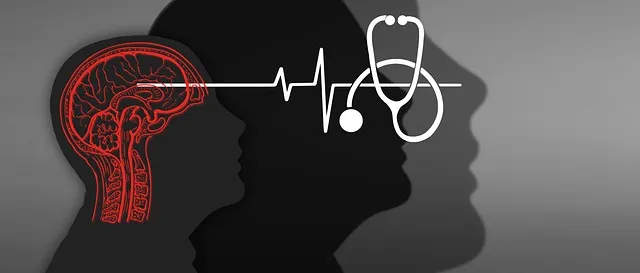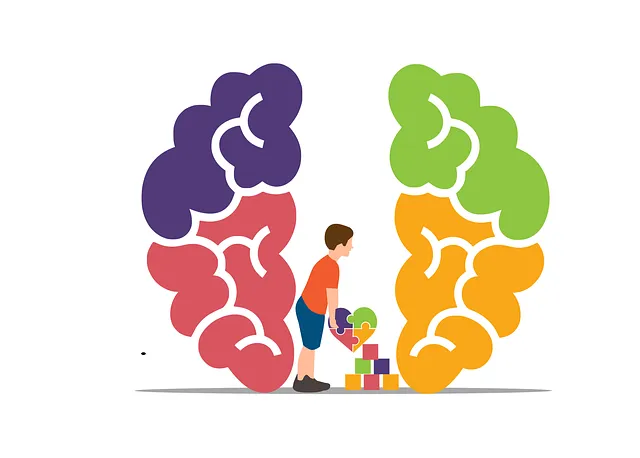Wheat Ridge Kaiser Permanente's successful community outreach programs focus on understanding local needs, building trust through engagement, and leveraging strategies like public awareness campaigns and crisis intervention guidance. They measure impact, foster partnerships, and secure funding to ensure long-term sustainability, integrating feedback and staying aligned with mental health dynamics within the community they serve.
Community outreach programs play a pivotal role in addressing the diverse needs of local communities, especially in healthcare. This article explores the successful implementation of mental health initiatives at Wheat Ridge Kaiser Permanente, a leading medical facility. We delve into understanding community needs, strategic program design, and measuring impact to ensure long-term sustainability. By examining these aspects, we highlight best practices that can be adapted by other healthcare providers to enhance community engagement and overall well-being.
- Understanding Community Needs: A Basis for Effective Outreach
- Strategies for Implementing Mental Health Programs at Wheat Ridge Kaiser Permanente
- Measuring Impact and Ensuring Sustainability of Community Outreach Initiatives
Understanding Community Needs: A Basis for Effective Outreach

Understanding Community Needs is a foundational step for implementing successful outreach programs, particularly at institutions like Wheat Ridge Kaiser Permanente mental health facility. By actively listening to and engaging with the community, the facility can tailor its services and initiatives to address specific local needs. This approach ensures that resources are allocated effectively, fostering a sense of trust and partnership within the community. For instance, the integration of Compassion Cultivation Practices could be better received and impactful in areas where high-stress levels or mental health awareness is a pressing concern.
Identifying these needs requires a holistic perspective, encompassing various factors such as cultural dynamics, socioeconomic challenges, and unique demographic characteristics. The Wheat Ridge Kaiser Permanente facility can facilitate this process by conducting surveys, holding focus groups, and collaborating with local community leaders to gain insights into the population’s overall well-being. Such efforts not only enhance the facility’s ability to provide targeted support but also contribute to building a stronger, more resilient community through Mental Health Awareness and Confidence Boosting initiatives.
Strategies for Implementing Mental Health Programs at Wheat Ridge Kaiser Permanente

Wheat Ridge Kaiser Permanente, as a leading mental health facility, recognizes the importance of comprehensive community outreach to address psychological well-being. Implementing strategies tailored to the unique needs of their service area is key. One effective approach involves Public Awareness Campaigns Development, utilizing various media to educate residents about mental health, breaking down stigma, and encouraging early intervention.
Additionally, Wheat Ridge Kaiser Permanente can foster strong partnerships with local schools, community centers, and faith-based organizations through Community Outreach Program Implementation. Offering on-site workshops, interactive sessions, and Crisis Intervention Guidance can help identify at-risk individuals and provide immediate support. These collaborative efforts not only enhance public access to mental health resources but also cultivate a culture of care and resilience within the community.
Measuring Impact and Ensuring Sustainability of Community Outreach Initiatives

Measuring the impact and ensuring the sustainability of community outreach initiatives are paramount for organizations like Wheat Ridge Kaiser Permanente’s mental health facility. By implementing programs that focus on self-esteem improvement, depression prevention, and emotional well-being promotion techniques, it becomes crucial to assess their effectiveness. This involves tracking key performance indicators (KPIs) such as participant engagement, satisfaction levels, and behavioral changes. Regular evaluation allows for data-driven adjustments, ensuring the initiatives remain relevant and impactful over time.
Sustainability requires a multi-faceted approach. Collaboration with local stakeholders, building strong community partnerships, and fostering continuous learning among facilitators are essential strategies. Additionally, securing funding through grants or donations ensures the long-term viability of these programs. By integrating innovative practices based on feedback and staying aligned with community needs, Wheat Ridge Kaiser Permanente can maintain a robust outreach program that fosters positive mental health outcomes.
Community outreach programs, as demonstrated by successful initiatives at Wheat Ridge Kaiser Permanente mental health facility, are pivotal in addressing the unique needs of diverse communities. By understanding local requirements and employing tailored strategies, organizations like Wheat Ridge Kaiser Permanente can significantly impact mental well-being. Continuous evaluation and fostering partnerships ensure these programs remain sustainable and effective, ultimately enhancing the overall community health.






